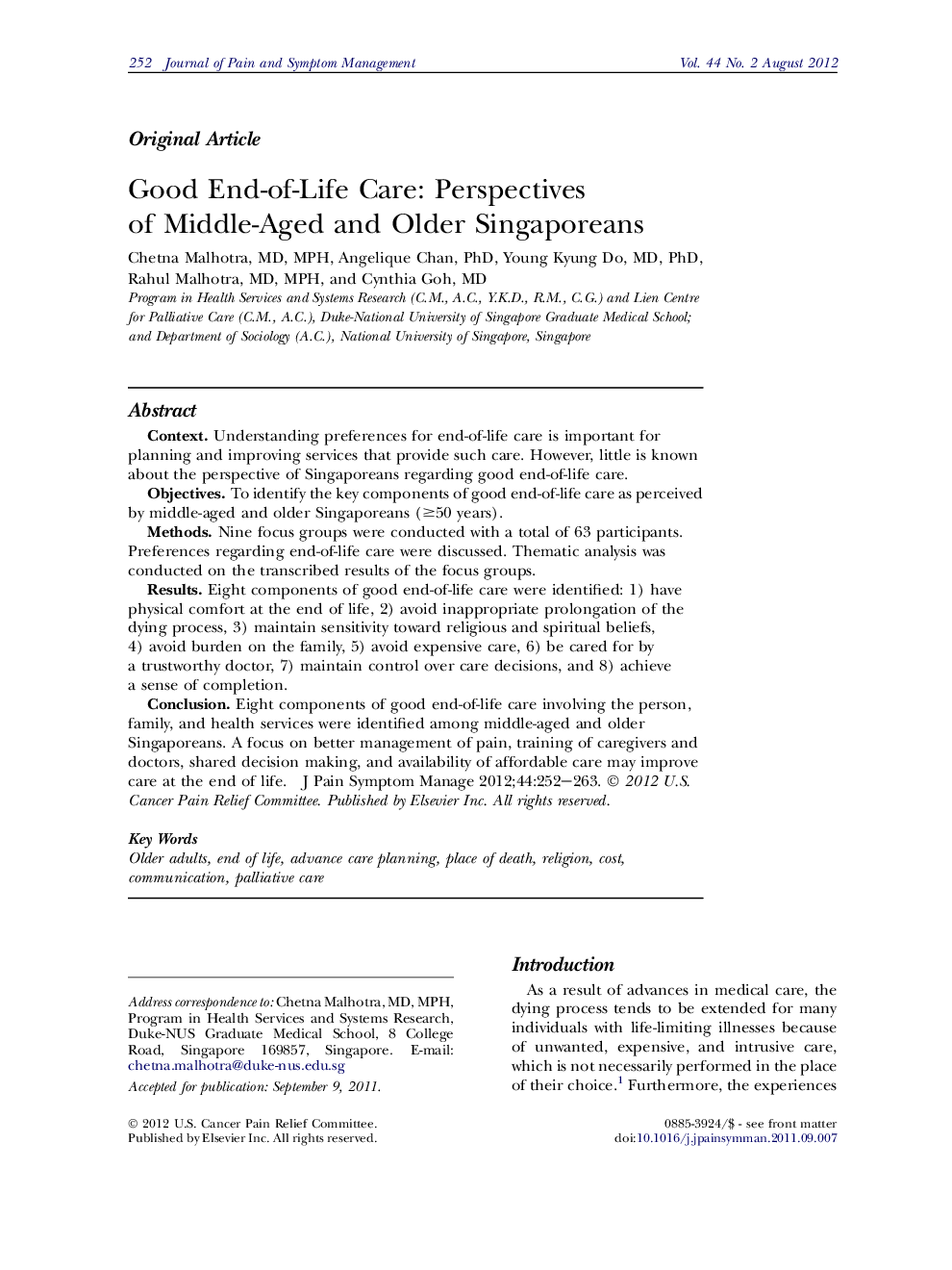| Article ID | Journal | Published Year | Pages | File Type |
|---|---|---|---|---|
| 2729796 | Journal of Pain and Symptom Management | 2012 | 12 Pages |
ContextUnderstanding preferences for end-of-life care is important for planning and improving services that provide such care. However, little is known about the perspective of Singaporeans regarding good end-of-life care.ObjectivesTo identify the key components of good end-of-life care as perceived by middle-aged and older Singaporeans (≥50 years).MethodsNine focus groups were conducted with a total of 63 participants. Preferences regarding end-of-life care were discussed. Thematic analysis was conducted on the transcribed results of the focus groups.ResultsEight components of good end-of-life care were identified: 1) have physical comfort at the end of life, 2) avoid inappropriate prolongation of the dying process, 3) maintain sensitivity toward religious and spiritual beliefs, 4) avoid burden on the family, 5) avoid expensive care, 6) be cared for by a trustworthy doctor, 7) maintain control over care decisions, and 8) achieve a sense of completion.ConclusionEight components of good end-of-life care involving the person, family, and health services were identified among middle-aged and older Singaporeans. A focus on better management of pain, training of caregivers and doctors, shared decision making, and availability of affordable care may improve care at the end of life.
